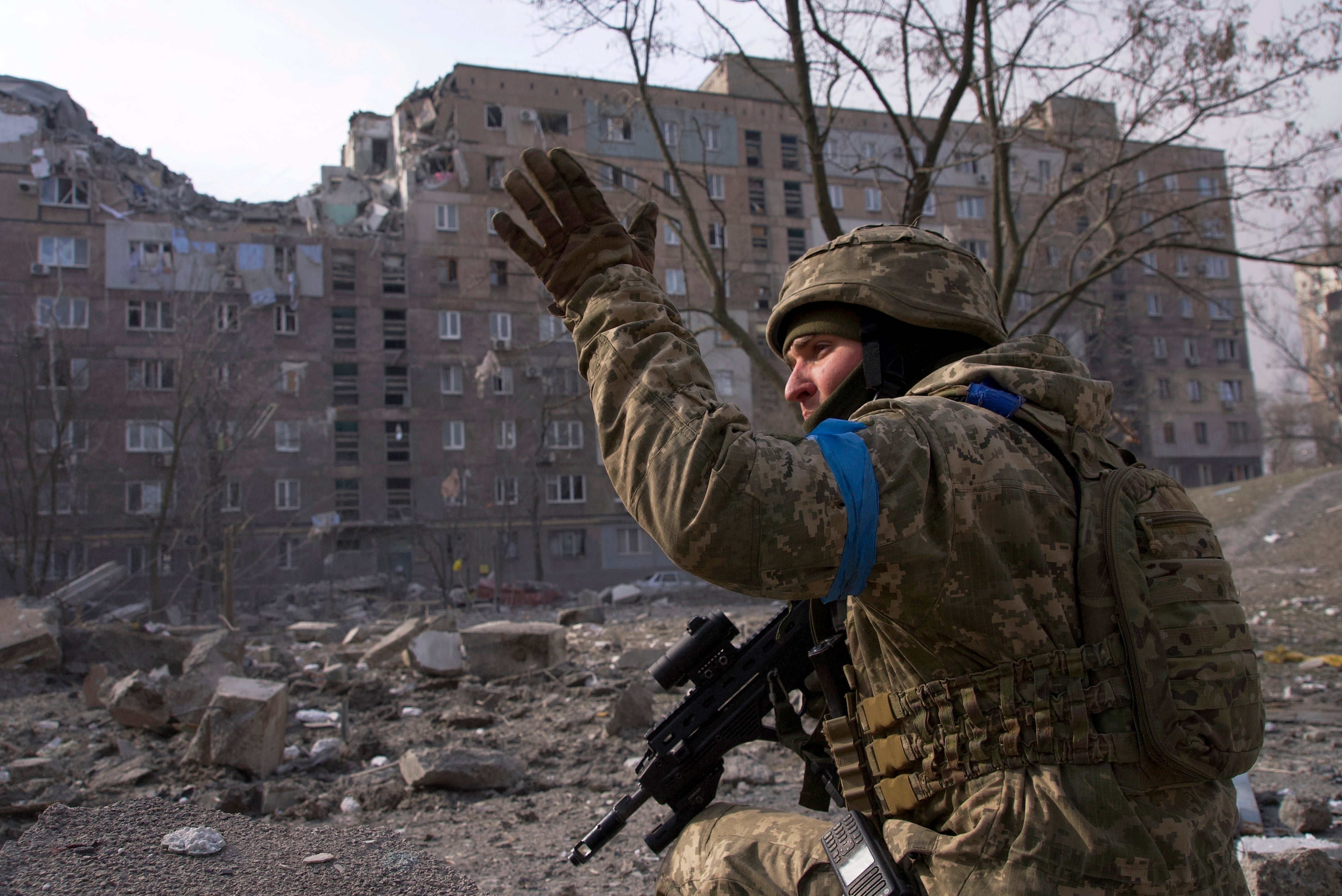The Ukrainian doctors forced to perform surgery without anaesthetic
Working 22-hour shifts with shortages of basic medical equipment and anaesthesia, Ukrainian doctors tell Arpan Rai they are operating in a permanent state of crisis


Russian airstrikes on Ukraine’s hospitals and power stations are pushing the country’s doctors to extraordinary limits, forcing operating theatres underground and leaving surgeons with little choice but to conduct complex procedures in the dark and with limited anaesthetic for patients.
Doctors in cities across the war-torn country spoke to The Independent about the toll of working 22-hour shifts in such punishing conditions, not knowing if their hospital could be the next target in Vladimir Putin’s renewed onslaught of drone and missile attacks.
Due to severe power shortages last week, surgeons were left with only four to six hours of electricity per day, crippling their ability to run operating rooms effectively, says Yuriy Boychenko, the founder of Hope for Ukraine, a charity supporting the country’s doctors and hospitals.
Follow the latest updates on the war in Ukraine in our live blog
Difficult choices are being made every day to operate in dimly-lit basements, deemed the safest place in the event of an airstrike, and at hours which are seen as the least likely to be disrupted by a Russian missile. These operating hours are not being disclosed for the sake of patients’ safety.

“The situation is hard to describe in words,” Boychenko tells The Independent. He says there was a noticeable shift in July, when Russia stepped up its attacks and power supplies across the country had to be rationed more strictly. “In July, the surgeons and doctors had to permit surgeries without power, in half-destroyed surgical rooms, without any anaesthesia – or whatever the patient had received before,” he says.
What would normally be one dose of anaesthesia is being redistributed among two to three patients, he says, with the watering-down of doses becoming more severe closer to the frontline, where resupplying is hardest.
“Doctors are using [a kind of] anaesthesia which holds on for long but then, if the procedure goes a little bit longer than is expected, the patient starts feeling all the pain,” he says.
“We have seen that first hand, you know, we have some soldiers who come in for surgeries, doctors had no choice but to do these procedures with patients actually feeling most of the pain because there’s no other way to treat them,” he tells The Independent.

Away from the immediate frontline but still in the line of fire, Dr Roman Kuchepera in Lviv has barely slept for more than a couple of hours a night this week. The head of his hospital is also an exhausted new father and spends his short nights trying to shield his baby from the sounds of air raids.
“He was hiding under me, crying all night as the air raid alerts for incoming Russian missiles come on frequently now,” he says.
It’s late at night in Ukraine when he speaks to The Independent on a Zoom call in a rasping, tired voice, detailing the brutal reality of being a medic and a new father in the time of Vladimir Putin’s invasion.
“I realise it is bad for my body but even worse for my patients. I have no choice but to be fully attentive for 22 hours inside hospitals, ensuring the war does not take away any more from them,” Dr Kuchepera says.
Just a night before our interview, Russia fired Kinzhal hypersonic weapons on Lviv, a city far from the frontline and close to Nato member Poland to Ukraine’s west. Moscow claimed it was striking designated targets linked to Ukraine’s defence industry, but it soon became clear that civilians were killed in the attack that damaged more than 50 buildings in the historic heart of Lviv, including homes, schools and clinics. One man lost his entire immediate family: his wife and three young daughters. Some 53 others, including seven children, were wounded.

For Dr Kuchepera, an incident like this means his phone is going off at all times, as he carries out consultations through the night. The strain is “unimaginable”, he says.
That Lviv attack took place at 5.40am local time, and against a seemingly random target. The unpredictable nature of when Russia will strike makes it impossible for doctors to plan ahead.
“It is not like the rest of the world where they know that, OK, we are going to treat X amount of patients per day and order X amount of whatever supplies they require. In Ukraine, we [could] have three days straight of massive airstrikes, based on Russia’s whim to attack [wherever], using whichever hypersonic missile they want,” Boychenko says.
“You are now looking at two types of medical facilities when Russian missiles rain. There are bigger hospitals that are better equipped. But when you are talking of the smaller, rural hospitals, they have a shortage of literally everything.”
Dr Marko Isajlovic is a senior doctor with the International Rescue Committee based in Kyiv, where he oversees health interventions across the country, including places like Sumy, a frontline city that has found itself a prime target for Russian capture. He says one in five of his doctors and nurses is crumbling under the stress of working in such conditions. He compares the situation to the Covid-19 pandemic, saying that while healthcare systems in the rest of the world have moved on and recovered, at the Ukrainian frontlines it feels like they are still frozen in that time, constantly overworked and fearing for their own lives.

He says Russia’s attacks on the power grid are an added challenge for frontline hospitals because it forces them to be prepared with backup generators – and therefore with large supplies of stored fuel that pose a big risk of explosion in the event of an airstrike.
In emergencies, there is always an International Rescue Committee team on standby, ready to transport urgent cases to other hospitals in case the power goes.
Dr Isajlovic says even wars should adhere to a few sacrosanct principles: Never target hospitals and civilians. These rules have been repeatedly violated with apparent impunity, and the surprise Russian attack on Ohmatdyt Children’s Hospital in July confirms that, he says. “It [strike on children’s hospital] was not expected. [Even] health facilities are no longer safe.”
Andrii Moskalenko, IRC’s pharmaceutical manager, speaks about the situation at the Regional Children’s Clinical Hospital in Sumy where the IRC is sending wound dressing materials and small medical equipment on top of toys, colouring books and support kits for children.
"It is difficult to imagine the horror of children being woken up by explosions, with the roof shattered above their heads. There are no words strong enough to condemn bombarding and wounding children. They are bearing the heaviest burden of this war,” he says.






Join our commenting forum
Join thought-provoking conversations, follow other Independent readers and see their replies
Comments